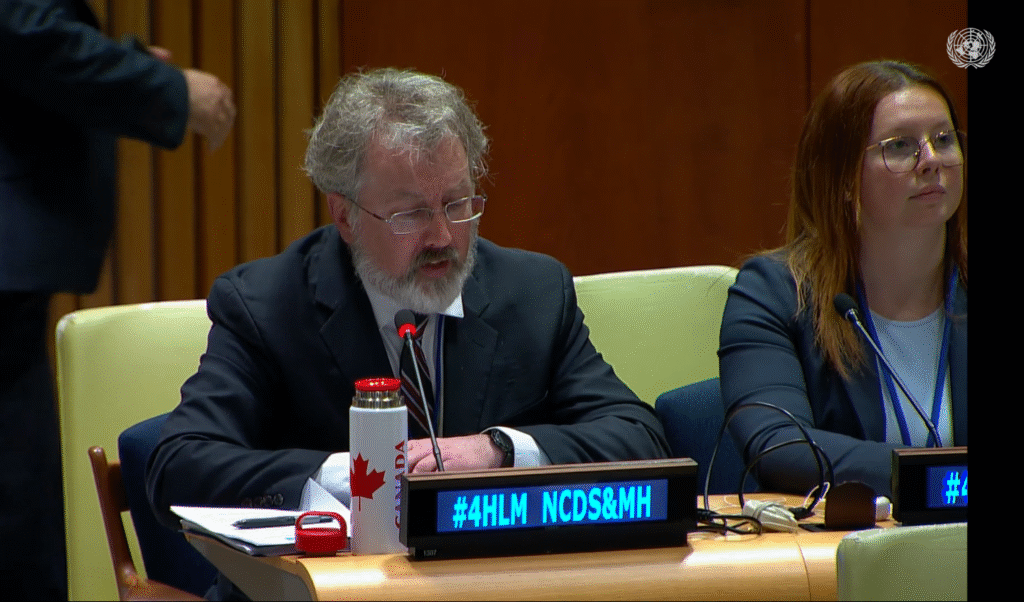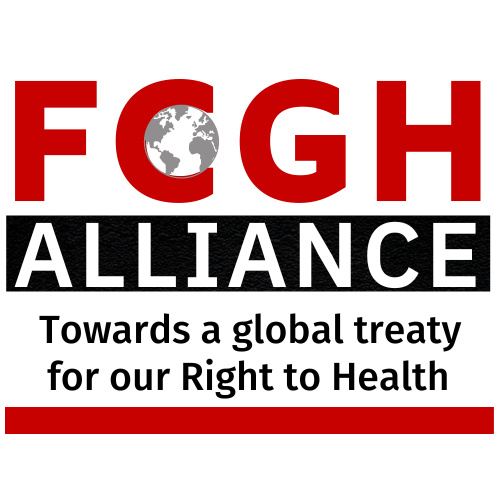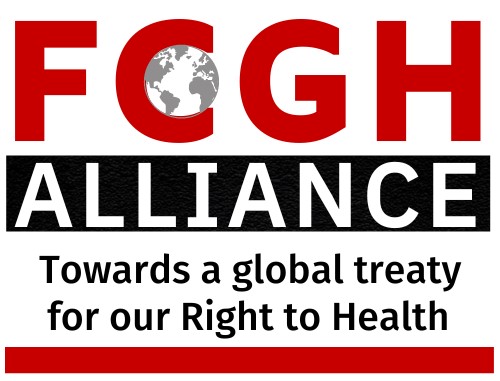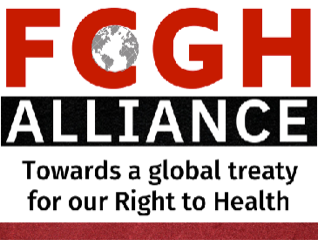Reflections by Kyla Young, MSc, JD, member of the FCGH Alliance
On May 2nd, stakeholders including non-governmental organizations, civil society organizations, philanthropic foundations, academia, medical associations and several member states convened at the United Nations (UN) headquarters in New York for a hearing on the prevention and control of noncommunicable diseases (NCDs) and the promotion of mental health and well-being. I had the opportunity to make the trip to New York to attend this hearing and attempt to make an oral intervention on behalf of the Framework Convention on Global Health (FCGH) Alliance.
The focus of this meeting was on Sustainable Development Goal (SDG) Target 3.4 which by 2030, aims to reduce by one-third premature death from NCDs through prevention and treatment, and promote mental health and well-being. This hearing was in preparation for the 4th High Level Meeting to be convened on September 25th when Heads of State and Government will meet at the UN General Assembly to reflect on the previous high-level meetings in 2011, 2014, and 2018, and, hopefully, set a new, ambitious vision for meeting this target with meaningful accountability measures baked in. In the coming months, informed by this consultation, member states will negotiate a political declaration to reflect on progress made since 2011 and renew their commitment to achieving the fast-approaching performance targets.
A joint statement prepared by the Centre for Health Science and Law (CHSL) and endorsed by FCGH Alliance and more than 50 CSOs was made as an oral intervention during the morning panel, by Executive Director of CHSL and FCGH Alliance member, Bill Jeffery. The FCGH Alliance issued a written brief and not an oral one due to time limitations.

The focus of the oral interventions given were thoughtful and called for key actions if countries were going to see marked reduction in premature deaths due to NCDs. Key points raised included:
- Ensure accountability of governments and the private sector. Many experts, NGOs and member states call for stronger measures to hold industry accountable for their roles in preventing and controlling NCDs, including transparency in monitoring and spending, and having conflict of interest safeguards in place.
- Address Social Determinants of Health. Social, economic, and environmental factors that play roles in NCDs and mental health and should be addressed accordingly.
- Integrate care. Strive for person-centered care that addresses both physical and mental health together to ensure comprehensive needs are met.
- Collaborate. A multisectoral governance approach and collaborative action is needed to effectively deal with these issues. NCDs and mental health overlap with other sectors such as education, social and environmental protection, which promotes a holistic view of well-being and more effective prevention and care.
- Close investment gaps. Greater funding commitments must be made to prevent and treat NCDs which will help to address the significant human and economic burden that NCDs impose.
- Implement health taxes. New financing mechanisms should include taxing unhealthy products, including tobacco, alcohol, and sugar sweetened beverages (and other unhealthful foods).
- Regulate effectively. Put in placestronger regulatory measures for unhealthy foods and other products, and to curb misleading and child-directed food marketing.
- Guarantee universal health care. A need to integrate NCDs and mental health into universal health coverage frameworks so individuals have access to health services without facing financial hardship. Some interveners advocated a shift in focus from institutional care to community-based services.
- Involve communities. Engaging communities—especially those living with and affected by NCDs and mental health conditions—in the decision-making processes.
- Engage youth. Empower the critical role young people play when driving change.
Although the progress towards achieving SDG target 3.4 is not advancing as quickly as it should, the meeting was both informative and inspiring. It highlighted how powerful collaboration, and advocacy can be when attempting to invoke change on a global scale. It also stressed the harm of inaction. This made it clear that real change must occur, and tangible commitments must be made to achieve real health gains for populations worldwide.
I look forward to contributing further to consultations on the Political Declaration in the lead-up to September and working with the Alliance to urge member states to acknowledge the value of committing to a FCGH.





